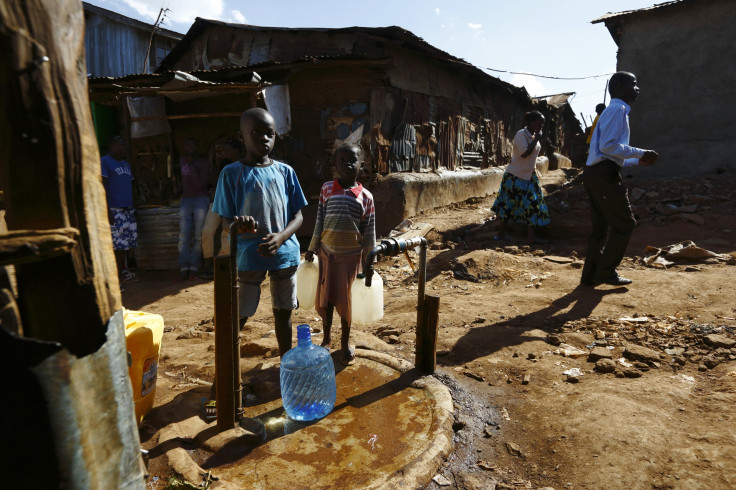Kenya Cholera Outbreak 2015: Nairobi Bans Raw Food, Hawking To Contain Spread Of Water-Borne Illness In Kibera Slum

A Kenyan governor has banned eating raw food and shuttered businesses that sell food from residences in and around Nairobi after a deadly cholera outbreak in the city's Kibera slum. Eight people from Kibera have died from the bacterial disease and about 100 others were hospitalized Friday, local reports said.
“Nairobians should avoid eating food which is not cooked. Food hawking is also not allowed in the city. This will help contain the spread of cholera,” Nairobi County Gov. Evans Kidero said this week, according to Kenyan news site Standard Digital.
Heavy rainfall and flash floods in the Kenyan capital of Nairobi over the past month have submerged towns and villages, claiming dozens of lives and forcing thousands to leave their homes. The floods have contaminated water sources, prompting the spread of cholera, health officials said.
“Poor drainage and sewerage systems, dirty water and food are the main causes of this outbreak,” Andrew Suleh, the CEO of Mbagathi District Hospital in Nairobi, told Kenyan newspaper the Star Friday.
The cholera outbreak has hospitals in Nairobi filled and some patients have to share beds. “We only have four wards here and each ward has six beds. This means we can only accommodate 24 patients at a time,” Suleh said.
Health officials said overcrowded areas in Nairobi -- like Kibera, the largest urban slum in Africa known for its poverty and lack of sanitation -- are highly vulnerable to water-borne illnesses like cholera. “Overpopulated areas with poor drainage and sanitation such as Matahre, Kibera and Eastleigh are the most affected,” St. John Ambulance spokesman Fred Majiwa told the Star. “Cholera is highly treatable but can cause death quickly due to acute dehydration.”
© Copyright IBTimes 2024. All rights reserved.





















